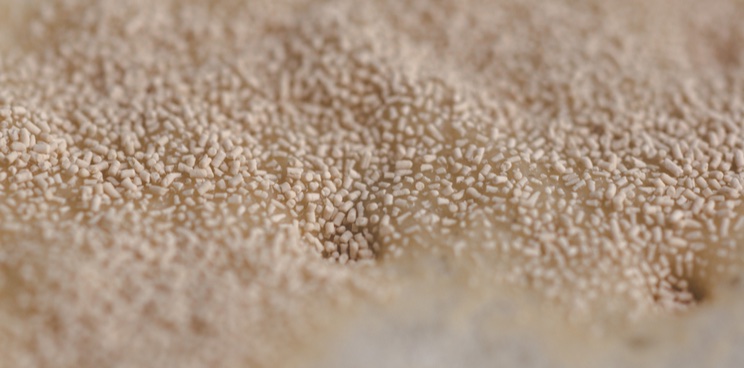Newsletter Signup - Under Article / In Page
"*" indicates required fields
The Danish industrial biotech company Novozymes has announced the launch of its latest non-GM yeast technology, Innova Fit, which it says reduces biofuel production bottlenecks caused by conventional and basic yeast.
Biofuels, including ethanol, are a renewable energy source being used as a replacement for fossil fuels, with substantially reduced CO2 emissions, particularly in the transport sector. With their increasing popularity, comes a need to improve production efficiency.
“Producers of ethanol are constantly striving to increase profitability and efficiency in their plants,” Brian Brazeau, President of Novozymes North America, told me. “Process upsets, such as high fermentation temperatures or infections, challenge yeast performance and negatively impact consistency and performance.”
To address these potential production bottlenecks, Novozymes, in partnership with industrial yeast specialist Microbiogen, launched the Innova platform in 2018. This technology uses novel non-GM Saccharomyces cerevisiae yeast to produce bioethanol from starch released from corn and other grains. The starch is released from the grains using Novozymes’ tailored companion enzyme products.
The latest product in the Innova portfolio, Innova Fit, “allows plants to operate more consistently in a broader set of operating conditions, giving plants the necessary flexibility to achieve production targets,” Brazeau said.
The Innova Fit yeast has been bred to withstand temperatures of up to 35.5°C, which will allow operators to reduce downtime, increase plant efficiency, and ethanol yield. It is also resistant to high ethanol concentrations and works well in reactions with a high proportion – up to 36% – of dry solids, often with a reduced need for yeast nutritional supplements or urea. This subsequently reduces costs.
The fact that the yeast strain is non-GM means that it will also be marketable in the EU, which has comparably stringent regulations limiting the commercial use of gene-edited or genetically modified organisms.
Geoff Bell, CEO of Microbiogen, also highlighted the fact that there “has been little innovation of non-GM yeast for ethanol producers in over 10 years.”
He told me: “The announcement of the new Innova product means that producers wanting to use non-GM technology now have a new tool that provides the ability to overcome production constraints and maximize fermentation performance.”
Bell added: “Microbiogen will continue to work closely with Novozymes to develop new yeast technology for the global biofuels market.” They will focus on next-generation yeast with even greater resistance to tough conditions and higher ethanol concentrations.
 Laura Cowen is a freelance medical journalist. Her background is in medical microbiology, with a particular interest in public health and infectious diseases. Outside of work she enjoys roller skating, trips to the theatre, and exploring the UK and Europe with her family in their new motorhome Bella.
Laura Cowen is a freelance medical journalist. Her background is in medical microbiology, with a particular interest in public health and infectious diseases. Outside of work she enjoys roller skating, trips to the theatre, and exploring the UK and Europe with her family in their new motorhome Bella.
Images from Shutterstock
Partnering 2030: FME Industries Report







